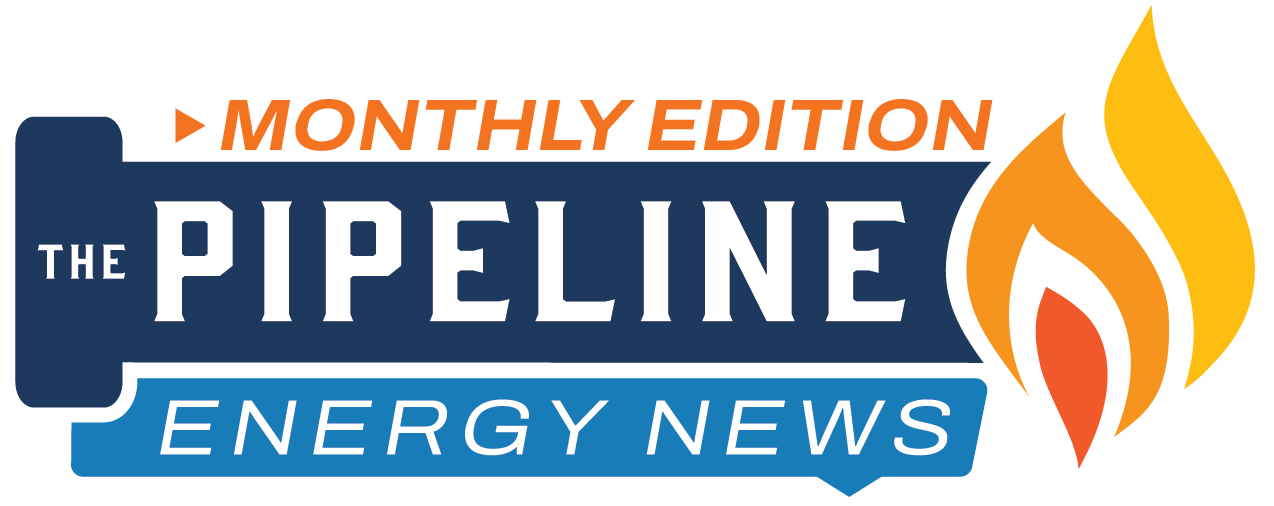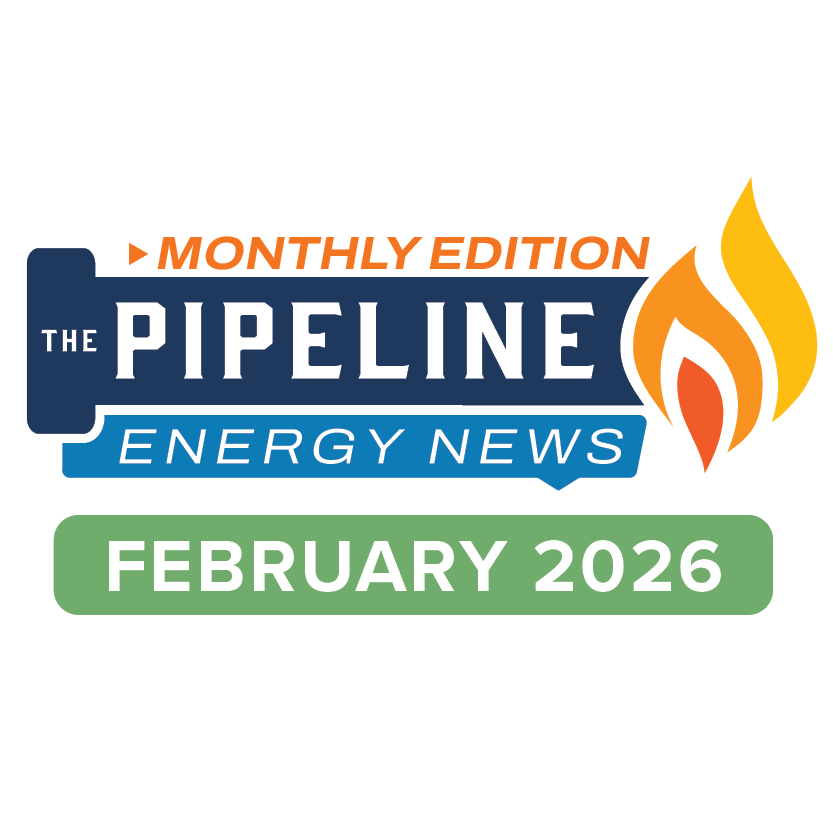
August 16, 2023
MSBA Newsletter Q3 2023 Energy News
Across the globe, unseasonably warm temperatures are influencing the natural gas market. This trend is being observed in various regions, affecting energy dynamics and consumption patterns.
Production and Demand
As summer draws to a close and the school year approaches, there's been a noticeable increase in the need for natural gas-generated electricity. The U.S. is currently enduring one of the hottest summers ever recorded, and data from S&P Global Commodity reveals that natural gas consumption for power generation has reached all-time levels averaging 44.6 billion cubic feet (Bcf) per day.

After warmer than normal winter last year, the U.S. has a record level of natural gas in storage which has caused the Henry Hub Spot Price to fall below $3 per million British thermal units (MMbtu) for most of the year.
This has caused producers to make minor cuts in production to help bring prices higher. The Energy Information Administration (EIA) reports that natural gas rigs are down 20 percent compared to last year, with 128 natural gas rigs in operation.
Looking Forward
Despite the ongoing cuts in natural gas production, U.S. storage levels remain 11 percent higher than the five-year average. This places the U.S. in a more favorable position when the colder months approach compared to the previous year. The newly published Farmers' Almanac predicts a cold winter reminiscent of the conditions experienced last year for the Midwest and unseasonably cold weather in Texas and Louisiana.
Another thing to watch out for as we approach late August and October is peak hurricane season. On August 3rd, the National Oceanic and Atmospheric Administration (NOAA) updated their hurricane prediction to above average. Hurricanes have historically triggered upward shifts in natural gas prices due to potential damage to offshore production in the Gulf of Mexico.
Missouri School Boards' Association
As the supplier of the MSBA Natural Gas Consortium, we hope you found this newsletter helpful and informative.
If you have any questions about your natural gas or the market, please contact Alan Pederson at 402-915-8378 and alan.pederson@woodriverenergy.com.
For all other questions related to your WoodRiver account, please reach out to our Customer Care or Accounting Team at the information provided below:
CUSTOMER CARE: Adding or removing contacts
PHONE: 720-617-1286
EMAIL: customercare@woodriverenergy.com
ACCOUNTING: Questions on invoices & payments
PHONE: 720-439-6514
EMAIL: AR@woodriverenergy.com

August 16, 2023
MSBA Newsletter Q3 2023 Energy News
Across the globe, unseasonably warm temperatures are influencing the natural gas market. This trend is being observed in various regions, affecting energy dynamics and consumption patterns.
Production and Demand
As summer draws to a close and the school year approaches, there's been a noticeable increase in the need for natural gas-generated electricity. The U.S. is currently enduring one of the hottest summers ever recorded, and data from S&P Global Commodity reveals that natural gas consumption for power generation has reached all-time levels averaging 44.6 billion cubic feet (Bcf) per day.

After warmer than normal winter last year, the U.S. has a record level of natural gas in storage which has caused the Henry Hub Spot Price to fall below $3 per million British thermal units (MMbtu) for most of the year.
This has caused producers to make minor cuts in production to help bring prices higher. The Energy Information Administration (EIA) reports that natural gas rigs are down 20 percent compared to last year, with 128 natural gas rigs in operation.
Looking Forward
Despite the ongoing cuts in natural gas production, U.S. storage levels remain 11 percent higher than the five-year average. This places the U.S. in a more favorable position when the colder months approach compared to the previous year. The newly published Farmers' Almanac predicts a cold winter reminiscent of the conditions experienced last year for the Midwest and unseasonably cold weather in Texas and Louisiana.
Another thing to watch out for as we approach late August and October is peak hurricane season. On August 3rd, the National Oceanic and Atmospheric Administration (NOAA) updated their hurricane prediction to above average. Hurricanes have historically triggered upward shifts in natural gas prices due to potential damage to offshore production in the Gulf of Mexico.
Missouri School Boards' Association
As the supplier of the MSBA Natural Gas Consortium, we hope you found this newsletter helpful and informative.
If you have any questions about your natural gas or the market, please contact Alan Pederson at 402-915-8378 and alan.pederson@woodriverenergy.com.
For all other questions related to your WoodRiver account, please reach out to our Customer Care or Accounting Team at the information provided below:
CUSTOMER CARE: Adding or removing contacts
PHONE: 720-617-1286
EMAIL: customercare@woodriverenergy.com
ACCOUNTING: Questions on invoices & payments
PHONE: 720-439-6514
EMAIL: AR@woodriverenergy.com
August 16, 2023
MSBA Newsletter Q3 2023 Energy News

Across the globe, unseasonably warm temperatures are influencing the natural gas market. This trend is being observed in various regions, affecting energy dynamics and consumption patterns.
Production and Demand
As summer draws to a close and the school year approaches, there's been a noticeable increase in the need for natural gas-generated electricity. The U.S. is currently enduring one of the hottest summers ever recorded, and data from S&P Global Commodity reveals that natural gas consumption for power generation has reached all-time levels averaging 44.6 billion cubic feet (Bcf) per day.

After warmer than normal winter last year, the U.S. has a record level of natural gas in storage which has caused the Henry Hub Spot Price to fall below $3 per million British thermal units (MMbtu) for most of the year.
This has caused producers to make minor cuts in production to help bring prices higher. The Energy Information Administration (EIA) reports that natural gas rigs are down 20 percent compared to last year, with 128 natural gas rigs in operation.
Looking Forward
Despite the ongoing cuts in natural gas production, U.S. storage levels remain 11 percent higher than the five-year average. This places the U.S. in a more favorable position when the colder months approach compared to the previous year. The newly published Farmers' Almanac predicts a cold winter reminiscent of the conditions experienced last year for the Midwest and unseasonably cold weather in Texas and Louisiana.
Another thing to watch out for as we approach late August and October is peak hurricane season. On August 3rd, the National Oceanic and Atmospheric Administration (NOAA) updated their hurricane prediction to above average. Hurricanes have historically triggered upward shifts in natural gas prices due to potential damage to offshore production in the Gulf of Mexico.
Missouri School Boards' Association
As the supplier of the MSBA Natural Gas Consortium, we hope you found this newsletter helpful and informative.
If you have any questions about your natural gas or the market, please contact Alan Pederson at 402-915-8378 and alan.pederson@woodriverenergy.com.
For all other questions related to your WoodRiver account, please reach out to our Customer Care or Accounting Team at the information provided below:
CUSTOMER CARE: Adding or removing contacts
PHONE: 720-617-1286
EMAIL: customercare@woodriverenergy.com
ACCOUNTING: Questions on invoices & payments
PHONE: 720-439-6514
EMAIL: AR@woodriverenergy.com

August 16, 2023
Across the globe, unseasonably warm temperatures are influencing the natural gas market. This trend is being observed in various regions, affecting energy dynamics and consumption patterns.
Production and Demand
As summer draws to a close and the school year approaches, there's been a noticeable increase in the need for natural gas-generated electricity. The U.S. is currently enduring one of the hottest summers ever recorded, and data from S&P Global Commodity reveals that natural gas consumption for power generation has reached all-time levels averaging 44.6 billion cubic feet (Bcf) per day.

After warmer than normal winter last year, the U.S. has a record level of natural gas in storage which has caused the Henry Hub Spot Price to fall below $3 per million British thermal units (MMbtu) for most of the year.
This has caused producers to make minor cuts in production to help bring prices higher. The Energy Information Administration (EIA) reports that natural gas rigs are down 20 percent compared to last year, with 128 natural gas rigs in operation.
Looking Forward
Despite the ongoing cuts in natural gas production, U.S. storage levels remain 11 percent higher than the five-year average. This places the U.S. in a more favorable position when the colder months approach compared to the previous year. The newly published Farmers' Almanac predicts a cold winter reminiscent of the conditions experienced last year for the Midwest and unseasonably cold weather in Texas and Louisiana.
Another thing to watch out for as we approach late August and October is peak hurricane season. On August 3rd, the National Oceanic and Atmospheric Administration (NOAA) updated their hurricane prediction to above average. Hurricanes have historically triggered upward shifts in natural gas prices due to potential damage to offshore production in the Gulf of Mexico.
Missouri School Boards' Association
As the supplier of the MSBA Natural Gas Consortium, we hope you found this newsletter helpful and informative.
If you have any questions about your natural gas or the market, please contact Alan Pederson at 402-915-8378 and alan.pederson@woodriverenergy.com.
For all other questions related to your WoodRiver account, please reach out to our Customer Care or Accounting Team at the information provided below:
CUSTOMER CARE: Adding or removing contacts
PHONE: 720-617-1286
EMAIL: customercare@woodriverenergy.com
ACCOUNTING: Questions on invoices & payments
PHONE: 720-439-6514
EMAIL: AR@woodriverenergy.com

August 16, 2023
MSBA Newsletter Q3 2023 Energy News
Across the globe, unseasonably warm temperatures are influencing the natural gas market. This trend is being observed in various regions, affecting energy dynamics and consumption patterns.
Production and Demand
As summer draws to a close and the school year approaches, there's been a noticeable increase in the need for natural gas-generated electricity. The U.S. is currently enduring one of the hottest summers ever recorded, and data from S&P Global Commodity reveals that natural gas consumption for power generation has reached all-time levels averaging 44.6 billion cubic feet (Bcf) per day.

After warmer than normal winter last year, the U.S. has a record level of natural gas in storage which has caused the Henry Hub Spot Price to fall below $3 per million British thermal units (MMbtu) for most of the year.
This has caused producers to make minor cuts in production to help bring prices higher. The Energy Information Administration (EIA) reports that natural gas rigs are down 20 percent compared to last year, with 128 natural gas rigs in operation.
Looking Forward
Despite the ongoing cuts in natural gas production, U.S. storage levels remain 11 percent higher than the five-year average. This places the U.S. in a more favorable position when the colder months approach compared to the previous year. The newly published Farmers' Almanac predicts a cold winter reminiscent of the conditions experienced last year for the Midwest and unseasonably cold weather in Texas and Louisiana.
Another thing to watch out for as we approach late August and October is peak hurricane season. On August 3rd, the National Oceanic and Atmospheric Administration (NOAA) updated their hurricane prediction to above average. Hurricanes have historically triggered upward shifts in natural gas prices due to potential damage to offshore production in the Gulf of Mexico.
Missouri School Boards' Association
As the supplier of the MSBA Natural Gas Consortium, we hope you found this newsletter helpful and informative.
If you have any questions about your natural gas or the market, please contact Alan Pederson at 402-915-8378 and alan.pederson@woodriverenergy.com.
For all other questions related to your WoodRiver account, please reach out to our Customer Care or Accounting Team at the information provided below:
CUSTOMER CARE: Adding or removing contacts
PHONE: 720-617-1286
EMAIL: customercare@woodriverenergy.com
ACCOUNTING: Questions on invoices & payments
PHONE: 720-439-6514
EMAIL: AR@woodriverenergy.com

August 16, 2023
MSBA Newsletter Q3 2023 Energy News
Across the globe, unseasonably warm temperatures are influencing the natural gas market. This trend is being observed in various regions, affecting energy dynamics and consumption patterns.
Production and Demand
As summer draws to a close and the school year approaches, there's been a noticeable increase in the need for natural gas-generated electricity. The U.S. is currently enduring one of the hottest summers ever recorded, and data from S&P Global Commodity reveals that natural gas consumption for power generation has reached all-time levels averaging 44.6 billion cubic feet (Bcf) per day.

After warmer than normal winter last year, the U.S. has a record level of natural gas in storage which has caused the Henry Hub Spot Price to fall below $3 per million British thermal units (MMbtu) for most of the year.
This has caused producers to make minor cuts in production to help bring prices higher. The Energy Information Administration (EIA) reports that natural gas rigs are down 20 percent compared to last year, with 128 natural gas rigs in operation.
Looking Forward
Despite the ongoing cuts in natural gas production, U.S. storage levels remain 11 percent higher than the five-year average. This places the U.S. in a more favorable position when the colder months approach compared to the previous year. The newly published Farmers' Almanac predicts a cold winter reminiscent of the conditions experienced last year for the Midwest and unseasonably cold weather in Texas and Louisiana.
Another thing to watch out for as we approach late August and October is peak hurricane season. On August 3rd, the National Oceanic and Atmospheric Administration (NOAA) updated their hurricane prediction to above average. Hurricanes have historically triggered upward shifts in natural gas prices due to potential damage to offshore production in the Gulf of Mexico.
Missouri School Boards' Association
As the supplier of the MSBA Natural Gas Consortium, we hope you found this newsletter helpful and informative.
If you have any questions about your natural gas or the market, please contact Alan Pederson at 402-915-8378 and alan.pederson@woodriverenergy.com.
For all other questions related to your WoodRiver account, please reach out to our Customer Care or Accounting Team at the information provided below:
CUSTOMER CARE: Adding or removing contacts
PHONE: 720-617-1286
EMAIL: customercare@woodriverenergy.com
ACCOUNTING: Questions on invoices & payments
PHONE: 720-439-6514
EMAIL: AR@woodriverenergy.com
Enroll in Choice Gas with Three Easy Steps
Click here to access our online Choice tool, or call our Choice gas experts at 1 (877) 790-4990.
Step 1: Enter your account number
- Your Black Hills Energy account number is located at the top right-hand corner of your bill.
Step 2: Review price offers and make your selection
Step 3: Confirm your selection and enter your control number
- You received a control number in your 2025 Choice Gas customer packet mailed to you from Black Hills Energy. If you cannot locate this, you can retrieve your control number by calling 877-245-3506 or visit choicegas.com
Once enrolled, you will be removed from supplier marketing communications within 24 hours.









